

Sample Economics Personal Statement (admitted to Oxford, Cambridge, LSE)
by Talha Omer, MBA, M.Eng., Harvard & Cornell Grad
In personal statement samples by field.
The following personal statement is written by an applicant who got accepted to top graduate programs in economics. Variations of this personal statement got accepted at Oxford, Cambridge, and LSE. Read this essay to get inspiration and understand what a top economics school PS should look like.
You might also be interested in reading this Statement of Purpose in Economics that got admitted to Harvard, Yale and Princeton.
Sample Personal Statement Economics
“Flick…chuggachuggachuggaa…puttt-putttt-puutttttt…rizzzz…”
The sounds coming from near the doorway may have startled an outsider but were barely noticed by the people lounging on charpoys and mooras (wicker stools). With the atmosphere abuzz with their chatter, the sputtering sound of the diesel generator lent more time to catch up as the bulbs lit up and fans whirred on throughout the haveli (palace) on an otherwise hot evening. But on days when it refused to crackle, my grandmother would enkindle gas lanterns filling the veranda with hissing sounds and soothing moonlight rays.
I still cherish these memories from my childhood trips to XYZ, my native village, some 450kms from the closest city. At the time, the short sojourns from Kuwait felt rather adventurous. However, the perspective turned wrong when I permanently moved to XYZ. Due to unannounced electricity breakdowns, we would find ourselves groping in the dark to the closest candle stand while sweating in the scorching summer.
And just when we thought it couldn’t get worse, the occasional power breakdowns segued into a full-blown crisis of the decade. Over the next seven years, we witnessed unprecedented power outages averaging 15-18 hours daily. People weren’t just lamenting the loss of mental peace; they were mourning the monetary losses worth billions of rupees translating into 1.5% of GDP.
Fast forward 15 years, and I found myself in a position to alleviate the situation. As Deputy Administrative Head of the Government’s Economic Affairs division, I administer a departmental budget worth $500 million. I am currently undertaking solarization projects. A recent shift towards renewables has occurred after public unrest during the early decade led to hasty investments in thermal-based power plants. Unfortunately, seven years later, we are still reeling from the aftermath of a bitter public backlash as we have the lowest regional electricity consumption per capita.
In addition to high tariffs, the energy sector has been marred by the accumulation of circular debt of $30 billion. This has been caused by multiple factors, such as electricity theft, transmission losses, and non-payment of dues. Having worked in Economic Affairs Division, I have also been part of a team that took massive power sector reforms, including:
- elimination of subsidies
- policy formulation on electricity theft and conservation
- overhaul of sectoral regulatory bodies
- privatization of distribution companies et al.
However, as the Program ended, so did the reforms.
Regrettably, negative externalities from these energy woes have had spillover effects on all socio-economic sectors. The environment has especially poorly been affected by the process for the lack of an integrated generation and transmission policy framework in the renewable industry. Being a lower riparian state has also exacerbated climate change. We face extreme weather conditions – floods, droughts, smog, and diminishing water tables. Unable to agree on water issues not covered under the Indus Water Treaty has led to regular skirmishes and legal battles in the International Court of Justice.
Given the background, my country’s economic and Energy woes require a holistic understanding of the subject. This makes Economic policy specializing in Energy the right choice for my graduate studies. Furthermore, I can become an effective leader and economist in the sector through the interdisciplinary pedagogical approach covering policy, economics, management, law; practical skills; quantitative and qualitative analysis within an international context.
My aim is socio-economic development in tandem with confidence-building measures and strategic partnerships with the neighboring countries. Studying at Oxford will provide this learning opportunity in and out of the class as I will interact with some of the most brilliant minds worldwide and work in teams with them. I also look forward to student-led events, conferences, guest lectures, field trips, and panel discussions to augment my understanding of supranational political demands. This will help me lead economic policy reforms for the next 25 years.
WANT MORE AMAZING ARTICLES ON GRAD SCHOOL PERSONAL STATEMENTS?
- 100+ Outstanding Examples of Personal Statements
- The Ultimate Guide to Writing a Winning Personal Statement
- Common Pitfalls to Avoid in Your Personal Statement
- Writing a Killer Opening Paragraph for Your Personal Statement
- Ideal Length for a Graduate School Personal Statement
- 100 Inspiring Quotes to Jumpstart Your Personal Statement
Sample Personal Statement for Masters in International Business
Sample Personal Statement for Masters in International Business My journey began amidst the kaleidoscope of Qatar's landscapes, setting the stage for a life attuned to cultural nuances. Transitioning to Riyadh in my teens, I absorbed a mosaic of traditions, sparking a...
Sample Personal Statement for Family Medicine Residency
Personal Statement Prompt: A personal letter is required. We are looking for mature, enthusiastic physicians who bring with them a broad range of life experiences, are committed to providing excellent patient care, and can embrace the depth and breadth of experiences...
[2024] 4 Law School Personal Statement Examples from Top Programs
In this article, I will discuss 4 law school personal statement samples. These statements have been written by successful applicants who gained admission to prestigious US Law schools like Yale, Harvard, and Stanford. The purpose of these examples is to demonstrate...
Sample Personal Statement Cybersecurity
In this article, I will be providing a sample grad school personal statement in the field of cybersecurity. This sample was written by an applicant who got admitted into George Mason, Northeastern and Arizona State University. This example aims to show how prospective...
100+ Grad School Personal Statement Examples
Introduction Importance of a Strong Personal Statement A personal statement is essential in the graduate school application process, as it plays a significant role in shaping the admissions committee's perception of you. In fact, a survey conducted by the Council of...
WANT AMAZING ARTICLES ON GRAD SCHOOL PERSONAL STATEMENTS?
- 100+ Personal Statement Templates
Clearing Universities & Courses
Clearing advice.
Recommended Clearing Universities
Popular Course Categories

Course Search & Discover
Start the search for your uni. Filter from hundreds of universities based on your preferences.
Search by Type
Search by region.
Recommended Universities

Northeastern University - London
London (Greater) · 100% Recommended
.jpg)
The University of Law
London (Greater) · 92% Recommended

University of East London
London (Greater) · 94% Recommended
Search Open Days
What's new at Uni Compare

Bangor University
Find the perfect Criminology degree which allows you to specialise in your interests

Heriot-Watt University
Your Edinburgh adventure awaits. Study career-led courses for graduate prospects.
Ranking Categories
Regional rankings.
More Rankings

Top 100 Universities
Taken from 65,000+ data points from students attending university to help future generations

About our Rankings
Discover university rankings devised from data collected from current students.
Guide Categories
Advice categories, recommended articles, popular statement examples, not sure what to search for, take our quick degree quiz.
Find the ideal uni course for you with our Course Degree Quiz. Get answers in minutes!
Take our full degree quiz
Get more tailored course suggestions with our full Course Degree Quiz and apply with confidence.
PERSONAL STATEMENT EXAMPLES Economics personal statements
Discover personal statement examples written by students accepted onto economics and related courses. Read through the examples to help shape your own personal statement.

Are you a strategist, analyst and problem solver?
Stay ahead of the trends with Economics at the University of Kent

Gain the finance skills employers are looking for
Choose Sussex for cutting-edge degrees in Finance, FinTech, Banking and Digital Finance. Prepare for a digitally advanced workplace.
Economics Personal Statements
Submitted by anonymous
Economics Personal Statement
My interest in studying economics is born from my growing up in the w...
Economics and Management Personal Statement
Economics attempts to understand and address many of the world’s most...
Economics and Finance Personal Statement
Over recent years I have developed a passion for looking at current e...
My desire to study Economics at university stems from my interest in ...
The dynamic consumer society we live in is governed by many different...
Economics BA (Hons) Personal Statement
Ever since I discovered that Economics is the study of how individual...
Submitted by James
As someone who is always up to date with current affairs, the foundat...
Submitted by Chris
Economics (and Management) Personal Statement
Discussing the housing crisis with my grandmother was a pivotal momen...
Submitted by Thomas
Economics (with Sandwich Year) Personal Statement
The world is a contrasting place and this is no different for the eco...
Submitted by Phoebe
Economics is woven into our lives even if we are unaware of its signi...
Submitted by Frank
Economics BSc Personal Statement
Economics is the most significant of the social sciences, its far rea...
Submitted by Louise
Economics and Politics Personal Statement
Politics is all about opinion and ideas. From the most powerful man ...
Submitted by Dorothy
BSc Economics Personal Statement
Inequality; the perfect word to describe the problematic world that w...
Submitted by Megan
From an early age I have always questioned where my money came from a...
Submitted by Karin
Business Economics Personal Statement
Having derived from a family that has continuously been driven by bus...
Submitted by Alice
Globally, 385 million children are living in extreme poverty. Economi...
Submitted by Naqsh
My admiration for the subject of economics stems from the way it capt...
Recommended Course

undergraduate Universities
Undergraduate uni's.

Northeastern Uni
.jpg)
114 courses

Uni of East London
575 courses

Uni for Creative Arts
672 courses

Leeds Beckett Uni
454 courses

Swansea Uni
1319 courses

Uni of Sunderland
340 courses

467 courses

Uni of Kent
580 courses

886 courses

Uni of Chester
645 courses

Heriot-Watt Uni
334 courses

Uni of Westminster
503 courses

Cardiff Met Uni
501 courses

Uni of Leicester
432 courses

Uni of Roehampton
468 courses

Uni of Winchester
259 courses

Middlesex Uni
634 courses

548 courses

Uni of Bradford
390 courses

Staffordshire Uni
472 courses

Uni of Portsmouth
761 courses

Uni of Hertfordshire
584 courses

Kingston Uni
617 courses

Ravensbourne
103 courses

Wrexham Uni
289 courses

Goldsmiths, UOL
344 courses

Uni of Brighton
407 courses

West London IoT

Escape Studios

Uni of Reading
685 courses

Bath Spa Uni
520 courses

Uni of Surrey
750 courses

Uni of Suffolk
186 courses

Coventry Uni
480 courses

Uni of Bedfordshire
656 courses

Queen's Uni
635 courses
,-Bristol.jpg)
UWE, Bristol
497 courses

Uni of Huddersfield
668 courses

Leeds Arts University

ARU Writtle
104 courses

Uni of Essex
1400 courses

Uni of C.Lancashire
798 courses

709 courses

Anglia Ruskin Uni
808 courses

Edge Hill Uni
383 courses

Uni of Hull
498 courses

Nottingham Trent
912 courses

FIND THE IDEAL COURSE FOR YOU
Degree Course Quiz
Find the ideal university course for you in minutes by taking our degree matchmaker quiz today.
Find the latest from Uni Compare

Northeastern Uni London
Want to earn two globally recognised degrees simultaneously? Look no further!

Cardiff Metropolitan Uni
Ranked as the most sustainable university in Wales (P&P Uni League 2023/24)
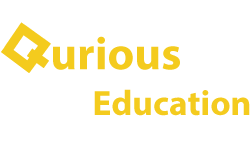
How to Write an Economics Personal Statement

Many students are unsure of how to write an Economics personal statement as they haven’t written one before. Starting your personal statement can be daunting, but you are not alone! We are here to give some pointers for students wishing to study Economics at university, particularly those applying to UK universities via UCAS. We have separated the process into three stages – research, writing and editing.
What to Research for your Economics Personal Statement
What to include in your economics personal statement, how to edit your economics personal statement, research your economics courses.
Research is vital for writing your Economics personal statement. First, you should have good knowledge of the Economics courses you are applying to. How does the university describe the Economics course (e.g. how Mathematical is it?). What content does the course include? Will your interested area in Economics be taught in the course?
Research Advice on How to Write an Economics Personal Statement
Second, you may want to read Economics personal statement examples from past applicants. This will give you some information what a good Economics personal statement includes, and what you should aim for. It is also good to look up any advice on writing personal statements. For example, this article you are reading! LSE also provides some general advice to writing any personal statement.
Research Which Aspect of Economics you are Interested in
Finally, you should research into the topic in Economics that you are interested in, which we will discuss more below. Google Scholar is a great way of searching for academic papers/essays regarding a specific Economics topic you want to learn more about. Another option may be to look through any suggested texts/reading for the university course you are applying to – does any topic in particular catch your eye? Finally, our article on Economics books to read for your personal statement may also help.
An Economics personal statement consist of many different components, and we explain the reason behind including each one in the sections below.
Area of Interest in Economics
In your statement, more than half of it should be used to show academic interest for a key topic/theme in Economics. The topic can be an extension to A-Level/IB syllabus that is slightly more advanced, or it can be something that will be explored further at degree level. This shows your understanding of Economics, and is a good opportunity to impress the admissions tutor with your enthusiasm. Remember – if you are interested in studying Economics, you should be self-motivated to learn more than what you are required to! Ideally, the topic/theme should also be tied to your personal reason to study the subject. This will make your interest more genuine, consistent and convincing. Have a specific topic in mind? Ask us about it !
Your Opinion on Economics
It is all well and good to explain what aspect of Economics you are interested in. However, that is not enough – admissions tutors would want to know your opinion on the issue/concept you discussed. They want to understand if have processed and understood what you have learnt, rather than just regurgitating it. It also demonstrates your ability to think and evaluate about a topic in Economics critically, showing independence of thought.
Motivation to Study Economics
Of course, you need to specify why you wish to study your subject in your statement. It is important to figure out a good reason here that is relevant to you personally, in order to stand out. Avoid generic reasons like ‘I wish to study Economics to understand the world better’ or ‘I wish to study Economics as my father works in finance’. Think deeper – what is it that is uniquely different about your environment, or what you experienced, that causes you to be interested about Economics?
Interest in Mathematics
For most, if not all Economics courses, there is a large amount of Mathematics involved. This is because Economics pursues a more scientific approach via Mathematical Modelling and Econometrics at higher levels of study. Hence, it is important for you to demonstrate your interest in Mathematics, and the use of it within Economics. You can reduce emphasis in this component if the course you are applying for involves less Mathematical modules.
Extra-curricular activities
It is important to include some extra-curricular activities relating to Economics, as it demonstrates your interest in the subject outside of your studies. Ideally this can relate to your area of interest in Economics and your motivation to study the subject. The activities can range from anything such as reading books on Economics , attending Economics events, to having a related work experience. If you want to include any experiences not relevant to Economics to show what you are like as a person, that is certainly acceptable, but should be less than 25% of your statement. Ask our Economics admissions advisor a free question below if you would like to know more about the various activities, and how to write about them.
Please enable JavaScript in your browser to complete this form. Ask Wilfred a Free Question on GCE, IB or GCSE Economics * Email * We will answer your question by email and send you relevant notes/materials for your Economics course. Email Ask
After a first draft, it is important for you to get someone to review your Economics personal statement. This can help give you an objective perspective on what others think. Show it to your careers advisor at school, your Economics teacher, your Economics classmates, maybe even parents/siblings that have gone through a similar process. Of course, those who have more exposure to the subject may be a bit more helpful, like someone who applied for an Economics degree a few years ago. If you need professional, personalized advice on your Economics personal statement, you can reach out to our qualified admissions advisor for suggestions. After receiving feedback, you can edit your personal statement accordingly, taking into account each reader’s unique perspectives. You will then have to compare the suggestions and decide which parts/sentences to keep, change or remove. After many changes/edits your personal statement will finally be concise, unique and polished enough for submission!
You may also like

UK BSc. Economics Entry Requirements – 2020 Entry
Are you choosing which UK university BSc. Economics course to apply to? The table below shows BSc. Economics entry requirements for GCE […]


Economics Books to Read for Personal Statement
Need suggestions on Economics books to read for your personal statement? In fact, most students applying for a BSc. Economics degree course […]

How Much Maths is in Economics at University Level?
Many students hesitate about studying Economics at university level because they are worried about the amount of mathematics involved. This article aims […]

Economics Personal Statement Example
Applying to study a UK BSc. Economics degree but not sure how to approach your UCAS Economics personal statement? On this page, […]
Leave a comment Cancel reply
Your email address will not be published. Required fields are marked *
Save my name, email, and website in this browser for the next time I comment.
- Oxbridge Law 24/25 Entry
- Non-Oxbridge Law 24/25 Entry
- Oxford PPE 24/25 Entry
- Oxbridge Economics 24/25 Entry
- Oxbridge Modern Languages 24/25 Entry
- Cambridge Land Economy 24/25 Entry
- Oxbridge Psychology 24/25 Entry
- Oxbridge English 24/25 Entry
- Oxford Human Sciences 24/25 Entry
- Oxbridge History 24/25 Entry
- Oxbridge Geography 24/25 Entry
- Cambridge Philosophy 24/25 Entry
- Oxbridge Classics 24/25 Entry
- Cambridge Architecture 24/25 Entry
- Cambridge HSPS Programme 24/25 Entry
- Oxbridge Medicine 24/25 Entry
- Oxford Biomedical Sciences 24/25 Entry
- Oxbridge Engineering 24/25 Entry
- Cambridge Natural Science 24/25 Entry
- Oxbridge Maths 24/25 Entry
- Oxbridge Computer Science 24/25 Entry
- Oxford Physics 24/25 Entry
- Oxford PPL 24/25 Entry
- Cambridge Veterinary Science 24/25 Entry
- Oxford Chemistry 24/25 Entry
- Oxford Biology 24/25 Entry
- Oxford Biochemistry 24/25 Entry
- Non-Oxbridge Medicine 24/25 Entry
- Non-Oxbridge Dentistry 24/25 Entry
- IMAT Medicine 24/25 Entry
- Can’t Find Your Subject?
- Law Interview Programme
- PPE Interview Programme
- Economics Interview Programme
- Oxbridge Medicine Interview Programme
- Natural Science Interview Programme
- Engineering Interview Programme
- Maths Interview Programme
- Dentistry Interview Programme
- Medicine MMI Interview Programme
- Our Guarantee
Our Students
Student Success Stories
- University Access Scheme
- New Tutor Application Form
- Frequently Asked Questions
- How Does It Work?
Enrol before the 17th May and get 4 hours of A-Level tutoring. Book your consultation here.
Students who enrol on a Programme before the 17th May will get 4 hours of A-Level tutoring as a complimentary addition. Begin by booking your consultation here.
- +44 (0) 208 068 0438
- [email protected]
SCIENCE PROGRAMMES (25/26 ENTRY)
HUMANITIES PROGRAMMES (25/26 ENTRY)
GET STARTED
Can't find your subject?
OXFORD TESTS (25/26 ENTRY)
CAMBRIDGE TESTS (25/26 ENTRY)
MEDICINE TESTS (25/26 ENTRY)
View Our Free admissions guides & resources
How UniAdmissions Cracked The Oxbridge Formula
Applying for Oxbridge is an opportunity seldom approached correctly. So how do you enter the top 16% of a strong cohort of applicants that get an offer? Discover how UniAdmissions get 2/3 of our students in.
How To Stay Motivated During Your A-Level Exams
With A-level exam season in full swing, we've put together 6 useful tips and tricks to stay motivated and achieve those expected grades.
Inside The UniAdmissions Portal: The UA Advantage
UniAdmissions students have access to the world's first dedicated Oxbridge admissions preparation platform, and this guide will help you discover exactly how the Portal will help you get your offer.
Discover all guides
ABOUT UNIADMISSIONS
Learn about who the world's first Oxbridge prep school are.
Learn about the Portal; the heart of our Programmes.
UniAdmissions' Foundation
The Foundation is our charitable arm to support disadvantaged students.
Students & Tutors
Discover who a UniAdmissions student is and our admissions criteria.
Learn about our high-performing Oxbridge tutors.
We're proud of our alumni. Read about their journey with UniAdmissions here.
Admissions Resources
Free Admissions Guides
Visit our Learning Centre and read our in-depth free guides.
We are the world's biggest Oxbridge application publisher. Learn more here.
Teachers Learning Hub
Learn about how to help your students get their place at Oxbridge.
Get Started
- Access Student Portal
- Oxbridge Programmes
- Open Day Webinar
- Tutor Application Form
- Common Questions
- Download Our Prospectus
- Successful Personal Statement For Economics & Management At Oxford
Last Updated: 22nd April 2020
Author: Adi Sen
Table of Contents
Welcome to our popular Personal Statement series where we present a successful Personal Statement, and our Oxbridge Tutors provide their feedback on it.
Today, we are looking through an Economics and Managment applicant’s Personal Statement that helped secure a place at Oxford University. The Economics and Management Course at Oxford examines issues central to the world we live in: namely how the economy and organisations function, and how resources are allocated and coordinated to achieve the organisation’s objectives.
Read on to see how this candidate managed to navigate the many disciplines of E&M.
Here’s a breakdown of the Personal Statement:
SUCCESSFUL?
The universities this candidate applied to were the following:
Enrolling on our Oxford Economics & Management comprehensive Programme will help you perfect your Personal Statement.
Welcome to UniAdmissions, the world’s first Oxbridge preparatory school with an Oxbridge success rate of 57% and with over 500+ UniAdmissions students placed at Oxford and Cambridge.
Performing well in the TSA is crucial for your application. Our Economics Premium Programme prepares you to score highly through one-to-one tuition sessions, intensive courses, and more.
Economics and Management Personal Statement
Economics is the study of now. I view it as the study of the psychology of the people who dictate our lives. The world around us is shaped by the fundamental concept of supply and demand, wants and needs, goods and services. What grips me is that everything I have studied I can apply to real life. Discussions about inflation, for example, are so applicable since its current status is active in the world of pricing; the price of a Big Mac and “Burgernomics” is something to which I can relate from my travels.
The statistical aspect of economic analysis is closely linked to my interest in Mathematics, thus I will take an Econometric route on option modules. This scientific approach to what is otherwise a field-based solely on individual theories and concepts interests me, as I find quantitative analysis much more accurate and reliable than qualitative theories. As an example, I relish analysing more Econometric models on the A-level Course: like Profit Maximisation calculations.
Despite this, Economics intertwines both Maths and Philosophy on a regular basis. I recently read an article from the Guardian by George Monbiot, which discussed the cost-benefit analysis model and whether nature could be quantified as a tangible asset, and how this would benefit neo-liberals in their perpetual quest for profit. This is just an example of how Econometric analysis does not always deliver such verisimilitude where the figures given are ambiguous. This is what is unique about Economics: there is no right answer to the question ‘Is there a right answer?’ The concept of there being methods of analysing the psychology of and nature behind the way that the interface between consumers and producers operates seems to exceed all other subjects in terms of interest.
I find it peculiar that a subject that has such a ubiquitous undercurrent in our society is so undefined and obscure; it is undoubtedly this which draws me to it. Consequently, I strive to keep up with Economics in the modern world by reading the “I” and “Guardian” newspapers, and “The Economist” magazine regularly. For wider background reading I have read Marx’s “Communist Manifesto”, Tim Hartford’s “The Undercover Economist” and “Too Big To Fail” by Andrew Ross Sorkin.
Sorkin’s book provided a gripping, in-depth insight into the world of investment banking and entrepreneurship – I finished the book in a matter of days. His book has inspired me to enter the investment sector. Upon graduation I would like to become an investment banker or negotiator, hence I am in the process of trying to arrange some work experience with the London Metal Exchange.
I completed a programme of work experience with Linden Homes this summer, through the Career Academy Programme on which I am enrolled. It was a six-week internship during which I gained a firm understanding of a construction company’s place within the national economy. I enjoyed spending valuable time in a variety of departments within the firm. I also have work experience planned in Belgium in 2013.
Additionally, I participate in a multitude of extracurricular activities. My team and I finished second in the national UMPH Business Competition; in Year 11 my team set the school record for the Enterprise Day Challenge and for three consecutive years my team won the Grimsby Inter-School Quiz without loss. Furthermore, I am part of both the Franklin College Debating Team and the weekly “Blue Sky Club”, where students meet to discuss current affairs.
Recently, a particular subject of interest has been the US election. We frequently discuss the debates and the candidates, covering subjects like their political viewpoints and how it will affect both our lives and those of the American public – plus the potential Economic ramifications of the possible outcomes. With a genuine zeal for the subject and an ability to relate my studies to the real world, I am convinced that I will thoroughly thrive at degree level Economics.
Access "The Big Book Of Oxbridge Applications" For FREE
Your Personal Statement is only one step in your Oxford E&M application, so discover everything you need to know in The Big Book Of Oxbridge Applications , available for free here! Through over 350 pages , you will find:
- 28 example Oxbridge Personal Statements
- Over 40 admissions test practice questions
- Interviews with Oxbridge students and graduates
- Additional downloadable resources
Fill in your details below to claim your digital copy today!
Good Points Of The Personal Statement
The student gives a good insight into their academic interests and what’s inspired them to develop over time. They also demonstrate a passion for the subject, not only by stating their interest in it but by further explaining what interests them and why they would make a good candidate to study it at university. The student is already accomplished and explains well what they’ve gained from their various extra-curricular activities.
Bad Points Of The Personal Statement
The writing is weak and, at points, unnatural. The forced interjections of examples and unusual adjectives make it read like a student attempting to write a formal and formulaic exam essay. They would do better to write in their usual style, even if it is somewhat informal; this will allow them to better express themselves and they will come across as more interesting to those reading it. More importantly than this, however, at times, the student fails to keep up their otherwise good level of detail, and the writing becomes list-like.
This is particularly prominent when they discuss books they’ve read to develop their understanding of economics. Although they expand on one of these, they do so in little detail. Interviewers are unlikely to be impressed by simply mentioning that you’ve read a book – any student applying for degree-level economics is able to read The Communist Manifesto, for instance – but they will be impressed by your response to it and what you gained from the experience of reading it. Unless you expand on these details, a list of books you’ve read does nothing to contribute to the statement.
UniAdmissions Overall Score:
This statement is strong, except where it discusses academic work. The detail here was likely sacrificed in favour of expanding further on their extra-curricular activities and their particular areas of interest. However, they have limited discussion of their study of various classic economic works so severely that it fails to add anything to the piece. The statement would, therefore, benefit from a more balanced approach to the various areas of the student’s life.
We give this Economics Personal Statement a 4/5 as they have clearly projected their passion for the subject onto paper – the most important part of a strong Personal Statement – albeit this was at the cost of other factors that should have been covered in more depth.
And there we have it – an Oxford E&M Personal Statement with feedback from our expert tutors.
Remember, at Oxford, the Admissions Tutors are often the people who will be teaching you for the next few years, so you need to appeal directly to them.
Our Free Personal Statement Resources page is filled with even more successful personal statements and expert guides.
Our expert tutors are on hand to help you craft the perfect Personal Statement for your Oxford E&M application.
With our Oxbridge Economics Premium Programme we help you craft the perfect Personal Statement , achieve a highly competitive TSA score and teach you how to Interview effectively.
Discover our Oxbridge Economics Premium Programme by clicking the button below to enrol and triple your chances of success.
UniAdmissions students placed at Oxford And Cambridge
Continue learning about Oxbridge...
Oxford announces biomedical sciences admissions test (bmsat).
Oxford is actioning various changes to its admissions testing process, including the introduction of a new admissions test for Biomedical…
Weird and Wonderful Oxford & Cambridge Interview Questions
Oxbridge interviews are known for being tough and sometimes a little bit intimidating. However, although the admissions tutors are highly…
Oxford Acceptance Rates 2023 – The Definitive Guide
As you may know, the University of Oxford is one of the hardest universities to get into in the world.…
AI Writing & UCAS Personal Statements: What You Need To Know
When it comes to writing in the 2020s, AI-Generation has become one of the most important issues for many industries,…
Cambridge Announces The ESAT To Replace The NSAA & ENGAA
In 2023, it was announced by the University of Cambridge that many of their established admissions tests would stop being…
Oxbridge Personal Statements: A Complete Teacher’s Guide
As a teacher, you will support students with their UCAS Personal Statements every year, but what about Personal Statements for…
The Secrets to Oxbridge Admission.
- We cracked the Oxbridge formula . Find out what we discovered here.
- Looking for application support? Don't work with a random tutor. This is what you need to know first.
- Get up-to-date Oxbridge advice with our webinars. Follow our Open Days led by our experts and stay updated.
- Begin your Oxbridge journey with UniAdmissions through our programmes of support by clicking here.
How would you like to speak to an Admissions Consultant?
- Your ambitions
- During your study
- After you graduate
Up: Home > Your ambitions > Economics Personal Statement
- Economics Personal Statement
A personal statement is up to 4000 characters or 47 lines where you tell a University why you are a suitable candidate for the course. Unfortunately, there is no way of guaranteeing a place on your chosen course but a combination of a good personal statement and the right grades will certainly give you a good chance.
To offer you something useful, we asked senior Economics lecturers around the country what they like to see in an Economics personal statement;
1) Ensure the personal statement is grammatically correct and without spelling errors . Applicants have time to prepare and go over their statement over and over, as well as to get help from their teachers, parents etc. Sloppiness of this kind gives the worst possible impression .
2) Keep paragraphs short and to the point. This is easier to read than a big body of text – admissions officers are unlikely to spend a long time reading over the statement, so make the key points stand out.
3) I see little need to innovate by writing bizarre things so as to stand out – keep things clear, relevant and to the point, also statements such as ‘I have dreamt of studying Economics from when I was a small child’ are completely implausible and all too common! Show enthusiasm for the subject but back it up with evidence of this , such as relevant books you have read (but make sure you have indeed read them before an interview…if caught out lying, looks very weak – you would be surprised how often this happens), issues in the media or current affairs that interest you etc.
Emphasise the reasons why you’re interested in and want to study, Economics . What is it about the subject that makes you want to spend 3 years specialising in it? What especially appeals? If you’ve studied Economics before you might talk about some of the areas you’ve found most interesting; if not, then explain how you came to want to study it. I think this is an exercise that’s of value notwithstanding the personal statement: students who’ve thought carefully about their choice are more likely to make the right one and ultimately to enjoy success with their degrees . Both with this and more generally on the personal statement, be honest (for your own sake as much as the selector’s, remembering that any exaggerations and poorly thought out statements are likely to be exposed in the event of any interviews ) and resist the temptation to write what you think the selector wants to hear (e.g. “I have always loved Economics ever since I was 2”) or to try and flatter (e.g. “I welcome the chance to study at your esteemed institution”); both are likely to sound insincere, won’t convince and will therefore, add little value. Just be yourself, and be both interested and interesting!
Paragraph 1 – give a general introduction of why you wish to study Economics; this might include a particular aspect of the subject that fascinates you (though explain why), when your interest was peaked and how a degree in Economics fits in with your future career aspirations.
Paragraph 2 – give a brief account of why you are suitable for the degree(s) in questions, highlighting relevant A-level courses taken and aspects of them that were of interest. Give academic and non-academic reasons -applicants tend to focus on what they would take from the opportunity to study towards a particular degree- it is nice to explain how they hope to contribute also to the social fabric of the university and interaction within the course/degree.
Paragraph 3 – give evidence of interest for Economics by listing one or two popular Economics books (e.g. Freakonomics, Superfreakonomics, the Armchair Economist, the Bottom Billion…the list goes on) that you have read. Rather than giving an implausibly long list of books read, focus on one or two (or three if the course is a joint honours degree with other subjects) books and (this is crucial…) identify how the book/particular chapter/treatment of a particular issue fuelled your interest in Economics, in particular, what questions it raised in your mind that a degree in Economics would help answer.
Paragraph 4 – describe (briefly) any work experience/voluntary work, highlighting any aspects that are relevant to Economics. A few lines on hobbies or sporting activities could also be included – perhaps to show perseverance of enjoyment in interacting with others. Some interests e.g. debating, are arguably of more relevance than say, golf.
Somewhere in the statement – if applying from overseas, list the qualifications attained in English language and perhaps say a few words on how studying Economics in the U.K. is of particular value to you.
Paragraph 5 – list any awards, prizes etc attained or participation in things like the Model UN or Duke of Edinburgh awards. Some applicants are involved in Target 2.0 and in doing so get a first-hand feel of the role of monetary policy and how interest rates are set and inflation targeting. These are relevant to the statement.
A statement that follows the structure above should give enough information to satisfy most readers and should appear structured, well-written and clearly thought out.
Vague statements of interest with broad sweeping statements of unbridled enthusiasm for the subject lack credibility if not backed up by specific activities/books read/courses taken etc. In my view, a straightforward personal statement that gets all the core points across in a coherent way serves the purpose best.
Previous: How do I apply?
Next: Disability and access requirements
Share this:
- What qualifications do I need to study Economics?
- Joint honours
- Where can I study Economics?
- How do I apply?
- Disability and access requirements
- Why study economics?
- Other useful sites
Hosted by The Economics Network at the University of Bristol . All rights reserved.
- Search This Site All UCSD Sites Faculty/Staff Search Term
- Chair's Message
- Commitment to Diversity
- Department History
- Press Contact
- Economics Roundtable
- Conferences
- Career Workshops
- Faculty Profiles
- Research Groups
- Research Centers
- Faculty Recruitment
- Faculty Resources
- Faculty Recognition
- In Memoriam
- Graduate Advising
- Current Students
- Prospective Students
- Resources for Current Students
- Majors & Minors
- About the Undergraduate Program
- Prospective Student Info
- Hire A Triton
- Stay Connected
- Undergraduate Program
- How to Prepare for a Ph.D. in Economics
Letters of Recommendation
- Writing Personal Statements
- Each school will ask you to write a personal statement. While the prompts vary across schools, generally a personal statement will ask you to describe your research interests, qualifications, and career goals.
- Schools vary in their importance of the personal statement, but it is an area that students tend to have a lot of questions about.
- The personal statement should be clear and well-written. Be realistic about your career goals. While showing interest in research in economics is important, don’t spend too much time describing your passion for economics. This will be unlikely to persuade admissions committees. Get to specifics as soon as possible.
- For example, be as specific as possible in describing your past research and course experiences. For example, instead of writing, “I was a research assistant to Professor X and learned a lot through that experience”, spell out exactly what you did. Did you implement data analysis for Professor X? Was that analysis based on a recent methodological advance that you needed to figure out? What type of analysis was it? How did you solve the problems that occurred when implementing the analysis? Be as specific as possible. If you relied on coursework (for example, you proofread and edited a proof in a paper), mention the mathematical background that allowed you to accomplish this task.
- You should describe potential research interests, but you don’t need to know exactly what you would like to research in graduate school. Interests change, and it is unlikely admissions committee will place tremendous stock in the specifics of your research proposal. In describing potential research, you should write clearly about your interests and show that you understand how to discuss a potential research project in economics. You can ask an advisor or letter-writer to look over your personal statement.
- Research Experience
- Getting Useful Letters of Recommendation
- Applying to Uni
- Apprenticeships
- Health & Relationships
- Money & Finance
Personal Statements
- Postgraduate
- U.S Universities
University Interviews
- Vocational Qualifications
- Accommodation
- Budgeting, Money & Finance
- Health & Relationships
- Jobs & Careers
- Socialising
Studying Abroad
- Studying & Revision
- Technology
- University & College Admissions
Guide to GCSE Results Day
Finding a job after school or college
Retaking GCSEs
In this section
Choosing GCSE Subjects
Post-GCSE Options
GCSE Work Experience
GCSE Revision Tips
Why take an Apprenticeship?
Applying for an Apprenticeship
Apprenticeships Interviews
Apprenticeship Wage
Engineering Apprenticeships
What is an Apprenticeship?
Choosing an Apprenticeship
Real Life Apprentices
Degree Apprenticeships
Higher Apprenticeships
A Level Results Day 2024
AS Levels 2024
Clearing Guide 2024
Applying to University
SQA Results Day Guide 2024
BTEC Results Day Guide
Vocational Qualifications Guide
Sixth Form or College
International Baccalaureate
Post 18 options
Finding a Job
Should I take a Gap Year?
Travel Planning
Volunteering
Gap Year Guide
Gap Year Blogs
Applying to Oxbridge
Applying to US Universities
Choosing a Degree
Choosing a University or College
Personal Statement Editing and Review Service
Guide to Freshers' Week
Student Guides
Student Cooking
Student Blogs
Top Rated Personal Statements
Personal Statement Examples
Writing Your Personal Statement
Postgraduate Personal Statements
International Student Personal Statements
Gap Year Personal Statements
Personal Statement Length Checker
Personal Statement Examples By University
Personal Statement Changes 2025
Personal Statement Template
Job Interviews
Types of Postgraduate Course
Writing a Postgraduate Personal Statement
Postgraduate Funding
Postgraduate Study
Internships
Choosing A College
Ivy League Universities
Common App Essay Examples
Universal College Application Guide
How To Write A College Admissions Essay
College Rankings
Admissions Tests
Fees & Funding
Scholarships
Budgeting For College
Online Degree
Platinum Express Editing and Review Service
Gold Editing and Review Service
Silver Express Editing and Review Service
UCAS Personal Statement Editing and Review Service
Oxbridge Personal Statement Editing and Review Service
Postgraduate Personal Statement Editing and Review Service
You are here
Economics & statistics personal statement example.
Living in a time of immense economic uncertainty has sparked my curiosity to explain the rationale of consumers, firms and governments.
The severity of vast global problems, from financial crisis to poverty, has also attracted me to Economics: a subject relevant now more than ever to the prosperity of all societies. I want to complement this with a fluency in Mathematics, to lay sound foundations for analysing economies and financial markets.
Due to my growing interest, I am teaching myself Economics A-level in my gap year, alongside Further Mathematics, to explore the quantitative methods which make economic theory more rigorous.
The logic and ingenuity of Mathematics in solving problems strongly appeals to me, and I thoroughly enjoy learning new and applicable concepts. I am particularly keen to study Statistics, as it can clarify economic phenomena by deriving and testing models with data.
During my internship at Brevan Howard Asset Management, I saw its practical importance in asset and risk evaluation, which has become so prominent with the recent financial crisis. I even related it to my Mathematics A-level, as Gaussian distributions are assumed in stochastic models for asset pricing. Curious to learn more, I read Taleb's 'The Black Swan'.
Seeing how models may fail to predict rare and devastating events has compelled me to learn how Statistics evolves to provide more accurate analysis in volatile markets. Moreover, the synergy of economic and financial principles in trading decisions has made me excited to study them with quantitative techniques.
An approach to Economics that intrigues me is game theory and I relish its mathematical elegance and usefulness. I am fascinated by the incentives and strategies of firms, and curious as to whether these produce optimal payoffs in reality due to bounded and biased rationality.
Researching these ubiquitous concepts has made me passionate to analyse strategic choice in markets, to better grasp the logic of the economic decisions around us.
I have pursued my interest in current economic affairs by reading Paul Krugman's online blog. My curiosity has driven me to question the Keynesian policies he advocates and the contrasting fiscal austerity widely implemented today.
Attending the LSE public lecture on UNCTAD fuelled my fascination with inequality, absorbing for its role in the Eurozone crisis and in poverty - evidence of the diversity of economic problems.
From Sen's 'Development as Freedom', I realised that the issues underlying poverty, like income inequality and capability deprivation, are multidimensional and must be tackled with political, social and economic principles.
I practised this at school through Model UN, where I researched, analysed and constructed logical arguments for growth and development, winning prizes at international summits. This strengthened my enthusiasm and skills for learning how economic policies can solve global problems.
My gap year internships will complement my study with a strong awareness of Economics in society. At Griffins' Insolvency Practitioners I will see the practical sides of business, finance and accounting and the effect of the lack of credit and economic growth on firms.
At the think tank 'Reform' I will assess government policies and their impact on the public sector and the wider economy. Contributing my research to papers for publication will require the analytical and essay-writing skills I gained from my A-levels, as well as communication and organisation skills I honed in positions of responsibility at school.
I hope to transfer these skills to my degree and to clubs and societies at university. Playing county tennis and teaching myself classical guitar also gives me a work-life balance.
Through my exciting internships and motivated self-study, I have been committed to engaging with Economics and Mathematics both in theory and in practice, to deepen my passion and skills for these subjects in preparation for my degree.
Profile info
This personal statement was written by zzXragXzz for application in 2013.
zzXragXzz's university choices Cambridge University University College London
Green : offer made Red : no offer made
zzXragXzz's Comments
It is quite tough to write a good/authentic personal statement but I tried my best. Don't think that you need to write about as many books as I did, I feel like I had to since I had never had an economics lesson before and wanted to adequately show my passion for the subject. My number 1 piece of advice is to keep your personal statement PERSONAL. This is something that requires a fair bit of thought and introspection which you must not be afraid to do, otherwise the PS will look and feel a bit lifeless, like my first PS did when I applied the first time around and got many rejections.
This time I applied to Cambridge econ, LSE econ and UCL (3 separate econ related courses). Despite my perfect academic record, I was actually rejected by UCL econ, and that too the day before my Cambridge interview! This actually went very well indeed, but there was one maths/game theory problem I struggled on, and I was placed in the pool and later rejected. So do keep in mind that no matter how good your grades and your PS and your reference are, nothing is guaranteed. I was devastated after UCL rejected me, since I thought there wasn't a hope in hell that Cambridge or LSE would give me an offer, but luckily LSE did and I'm starting there this year (2013). So try not to be too disheartened if you receive a rejection: it happens to all of us at some stage in life. The important thing is to learn from it, pick yourself up and keep working away. The university you attend will not by itself determine the trajectory of your life, and remember, the tough part of university is not getting in, but getting out with a good degree.
Would be happy to help anyone with their PS or interview preparation, just email me at rahulsugand at hotmail.com (please use @ instead of 'at', this is just to make sure no one spams my email address!). I only ask that students in the current admissions cycle email me for help. If you are not in the process of writing a personal statement or preparing for interview, please wait till you have applied before emailing me for advice. Best of luck!
Related Personal Statements
Add new comment.

Top Tips for a Cambridge Economics Personal Statement
Cambridge economics personal statement – top 10 tips: dos and don’ts.

The Cambridge Personal Statement is a crucial component of your university application. It presents a unique opportunity for you to differentiate yourself from other applicants. You would be able to articulate your story and explain your interests beyond that of numbers on an admissions test. Furthermore, it gives the interviewer a chance to understand who you are. It also provides a platform to bounce off questions during your interview.
They can tailor questions to your personality, interests, and commitment to who you are as a person and your amalgamation of experiences before you. To guide you through the arduous university application process, our Oxbridge application experts have compiled a list of top 10 Economics Personal Statement Cambridge tips. This includes dos and don’ts– for your Cambridge Economics Personal Statement for the 2024/25 application cycle.
General Advice for Cambridge Personal Statement
The economics course at Cambridge is a comprehensive course that covers all types of economics: core, pure, and applied. Furthermore, the course at Cambridge is also engineered in a manner that allows students to use techniques and schools of thought from other related fields This includes sociology, statistics, mathematics, politics, and history.
Hence, your Cambridge personal statement should clearly demonstrate that you understand that the course is not only theoretical but also includes a significant portion of mathematical reasoning and knowledge. Furthermore, when planning out your Economics personal statement Cambridge admissions tutors will be looking for you to research Cambridge’s achievements in economics and include it in your writing to illustrate your interest in economics.

Additionally, when you are crafting your Economics personal statement, you would most likely also be applying to four other university courses. This may result in your statement being vaguer. The University of Cambridge is aware of such and will require you to fill out an ‘Online Supplementary Application Questionnaire (SAQ)’. This is shortly after submitting the UCAS application. So make sure you’ve created another condensed version of your Economics personal statement that you can directly submit to Cambridge.
Top 5 Tips for your Cambridge Economics Personal Statement
1. demonstrate that you are well-read in economics ..
Cambridge does not presume prior knowledge of Economics (after all, you are going to Cambridge to study it!). However, being familiar with Economics terminology as well as its basic principles would give you an edge over other applicants. Furthermore, being well-read in the field also signals to the examiner that you are interested and passionate about the subject. You would take the initiative and seek out knowledge on your own if you are truly passionate about the subject! If you don’t know where to start, you can access Cambridge’s recommended preparatory reading list on their website, or through this link here: Prelim Reading . Furthermore, remember that you are not restricted to books! This could also be in the form of news articles – The Economist, The Guardian, The New Yorker, Vox, The New York Times, etc. are all great places to start. You can also read magazine columns. Or it could even be in other forms of medium such as podcasts, documentaries (available on accessible platforms such as Netflix!), or even Youtube videos. Watching an economics documentary instead of your usual prime-time TV show would be a great way to incorporate learning into your everyday lifestyle.
2. Demonstrating that you are proficient or interested in Mathematics .
Although it is not immediately obvious for an Economics course, the Economics course at Cambridge assumes and requires students to be proficient in Mathematics. Fret not, they only require you to have fully mastered your course syllabus and material at the A-level Mathematics level before commencing your studies. However, showing that you are proficient and interested in Mathematics would help you both in your application and if you end up pursuing the course as there are definitely mathematics components in the course. For example, if you take further mathematics, you would benefit from knowledge in Further Pure Mathematics as well as Statistics. Participating in mathematics competitions or having done work in statistics would be useful in your application as well as course.
3. Focusing your application on your interest in Economics .
Remember that in your Economics personal statement Cambridge admissions tutors are looking out for students who are interested and are a good fit for the course. Hence, it is always important to remember that in your personal statement Cambridge Economics should feature highly! Elaborate on your interest in Economics! You can do so by answering the following trigger questions: Why are you interested in Economics? Are there specific aspects of the course that interests you and why? Do you have any personal qualities or traits that would make you a good Economics student? Focusing your body paragraphs on certain aspects of Economics that interest you and why, or qualities that make you a good Economics student could be used as an overall structure when crafting your Economics Cambridge personal statement. Referencing relevant experiences and reflecting on them would also be useful when writing your personal statement.
4. Having a good structure for your Cambridge personal statement .
Using a good structure when writing your Economics Cambridge personal statement would be good to not only enhance readability but also allow you to not miss out on or forget certain points when crafting your personal statement. You can have a look at a Cambridge economics personal statement examples. But remember when looking at economics personal statement examples Cambridge admissions tutors are adept at spotting plagiarism so looking at it to gain an understanding of structure rather than content is a good option.
A good structure could look something like this: Introduction– A short 3-4 lines briefly mentioning the main reasons why you are interested in Economics, or how you started becoming interested in the course. Next, your body paragraphs can focus on traits that you have that would make you a good economics student, or specific details or aspects of the course that interests you. Each point could be one body paragraph, and you can support and elaborate on each point with examples (such as competitions that you have participated in, books surrounding those concepts that you have read, societies that you have been a part of, etc.) You can then conclude by summarising the important points you want your Cambridge admissions tutor to remember and take away.
5. Giving yourself sufficient time to write your Cambridge Economics personal statement .
It might seem impossible to start crafting your Economics Cambridge personal statement, especially when you are staring at a blank word document and you have no idea where to start. If you are experiencing writer’s block, you can start by listing down all your achievements and experiences. You can then list down details or aspects of the course (you can easily research this!) that interests you, as well as a separate list of qualities that an economics student should have. You can then match your experiences to any points from the two lists, and use each match as a backbone when fleshing out your body paragraphs!

Top 5 things to AVOID for your Cambridge Economics Personal Statement
1. having a poor or incorrect understanding of the course.
Many students who apply for a course at university have a misguided or misinformed idea of the course that they would be studying. This is because their impression of the course is from hearsay or what they see in films, or they assume that it would be the same as the subject they studied in high school. For example, especially for economics, students would not expect the amount of mathematics or statistics that are part of the course.
Having a good understanding of what you are in for can also benefit you when writing your personal statement. For example, you can explain how parts of your interest or personality align well with specific or general aspects of the course. This signals to the Oxford admissions tutor that you understand what you are applying for and that you are interested and are a good fit for it.
2. Making your Economics personal statement an economics essay instead of elaborating on your interest or story
Although it is helpful to mention economic theories in your personal statement when you are trying to explain your motivation to study economics, or when elaborating on the books that you have read, ensure that you do not turn your whole Economics personal statement into an economics essay. Keep in mind that what the Cambridge admission tutors are looking out for when they are reading your personal statement is to understand why you want to study economics, and what makes you the perfect fit for the course. Even if you found a really difficult or obscure economics theory, talking at breadth about it rather than focusing on your story would put you at a disadvantage– these tutors would be experts in their field, and if they wanted to learn more about a particular theory, they would pick up a textbook instead of your Economics personal statement!
3. Using too much jargon or using vocabulary that you are not familiar with
You might think that using unconventional vocabulary or fancy terminology would make you sound or appear intelligent. However, especially if you are unfamiliar with the terms, this would actually work against you instead of helping your application. This is because your personal statement could end up sounding unnatural, wordy, and hard to read. Think about it this way– explaining a difficult concept in simple words is more impressive than using a difficult word incorrectly! Furthermore, Cambridge admissions tutors would be reading hundreds of Economics personal statements a day– If your Cambridge personal statement is full of jargon and tough words, it would be difficult for them to understand what you are trying to convey to them. You would not way your ideas to be lost in translation, so make sure you communicate in a simple and effective manner! Always value clarity over vocabulary.
4. Not reflecting on any experience that you mentioned in your Cambridge Economics personal statement
Your experience is only as valuable as what you have taken away or learnt from it. Especially when you are mentioning experiences that are not directly related to that of Economics, you should always mention how it is relevant to your application to Economics– whether it be your interest in it or certain personal qualities that you have. If you want to mention a particular experience that you have, however, you are unable to link it to Economics, you can think about how it has led you to develop certain transferable skills. For example, if you have done a lot of community service or volunteered at a charity, you can talk about how this has led you to be interested in learning more about Economics policies or theories that could help with inequality or poverty.
5. Only give yourself enough time to write a singular Cambridge Economics personal statement
Never expect to only write one Cambridge personal statement, and that being the final draft that you would be submitting. Your first personal statement that you craft would not be your best one, and you should always give yourself enough time to constantly improve and write multiple drafts to further improve it. After writing a draft that you are proud of, it would also be good for you to leave it aside and not think about it. After a week, you can return to it with a fresh mind, and you would be able to note out errors or aspects of it that you would like to further refine. You can also let seniors, friends, or your school’s career guidance counsellor proofread your Economics personal statement for them to give a more objective view and perspective on your personal statement. Their feedback could be immensely helpful, as sometimes we might not be the most objective person when telling our own stories. However, do remember to not share your Economics personal statement with anyone, as this could lead to unnecessary plagiarism problems!
Save my name, email, and website in this browser for the next time I comment.
Advice and feedback from our expert tutors on writing a standout personal statement
Prepare for your interview with the help of our expert Oxbridge tutors, who will personalise your sessions according to university and college
This comprehensive course includes tutorials, sample scenarios and model answers and award-winning strategies!
- FREE Applying to Oxbridge Course
- FREE Applying to Law Course
- FREE Applying to Medicine Course
- FREE Oxbridge Admissions Test Past Papers

Browser does not support script.
- Undergraduate
- Executive education
- Study Abroad
- Summer schools
- Online certificate courses
- International students
- Meet, visit and discover LSE

Personal statement
The quality of an applicant's personal statement is very important at LSE. The School does not interview for places so this is an applicant’s only opportunity to demonstrate they are a good fit for the course. Applicants should consult the advice here, as well as advice from UCAS when preparing to complete this section of their application.
Please note that writing a personal statement following the guidelines below does not guarantee an offer of admission. Personal statements are looked at on a comparative basis and there is a great deal of competition for places at LSE.
LSE does not accept additional or supplementary personal statements. We can only consider the personal statement submitted via UCAS.
Writing your personal statement
We expect that your submitted Personal Statement is structured and coherent and that you fully utilise the space available on your UCAS application form. We expect that you have checked spelling, punctuation, and grammar and that your Personal Statement flows in a logical order. We expect that your Personal Statement is entirely your own original work. We reserve the right to reject your application where it has been found that a statement has significant similarities to a previous submission or has been created with the use of Artificial Intelligence.
Before you start writing, do your research
Before you start writing your personal statement, you should visit our course guides . These guides give information on the course content of each of our undergraduate programmes.
When assessing your personal statement our Admissions Selectors will look at how well your academic interests align with the LSE course. So, for example, the Anthropology Admissions Selector is likely to prefer a statement which focuses mainly on social anthropology - which is taught at LSE - over one which suggests the applicant is very interested in biological anthropology, or a combined degree with archaeology, as these courses are not offered at the School.
Similarly, a personal statement which shows an interest mostly in modern international history (the focus of LSE’s International History course) is likely to be more competitive than one which shows a significant interest in ancient history, as LSE does not offer any ancient history units.
If you are applying for a range of slightly different courses, we recommend that you focus your personal statement on the areas of overlap between them, so that your statement appeals to all of your UCAS choices. It is important to note that LSE does not accept replacement or supplementary personal statements.
What to include in your personal statement
Your personal statement should discuss for the most part your academic interest in the subject you wish to study. One way to think about the personal statement is to reflect on what we expect from LSE undergraduates: we ask them to learn about topics relevant to their course, through reading or other experiences, and then discuss the ideas they have encountered in academic essays. This is the skill we look for in the personal statement and we recommend at least 80% of your statement should be dedicated to this type of academic discussion.
How you show your wider engagement with your subject is entirely up to you. Our Selectors look for students who can best reflect on the experiences and academic ideas they have encountered through the opportunities available to them, not those who have had the best opportunities. If you are not sure where to start, you could try listening to podcasts of LSE public events or look in the prospectus for examples of suggested reading. Remember we are interested not just in a list of what you have read/encountered, but evidence you have reflected on the academic ideas.
To help you begin, there are several questions you could think about:
- Why have you chosen the course? What attracted you to the subject? Which aspects of the subject have interested you sufficiently to want to study it at degree level? Is there a specific area of the subject you wish to focus on? What are the big issues in the subject, and what do you find most interesting about them? What are your thoughts on these topics?
- Have you developed your subject interest outside of your school studies? For example, have you undertaken any additional reading to broaden your knowledge of the subject? Have you attended lectures or explored online material relating to the subject? What did you find interesting in your reading/in the lectures you attended and what are your thoughts on the topics covered?
- Have you gained any skills from your other school subjects that complement your application to study your chosen subject? Have you had the opportunity to undertake work experience relevant to your application? If you did, how did this experience give you a wider understanding of the topics you will study at university?
- Have you attended any schemes or activities at LSE or other universities, such as Summer Schools, Saturday Schools, LSE Choice, etc? What you have learned from these? Have they furthered your knowledge of or interest in your chosen subject?
If you are applying for deferred entry, as well as thinking about the questions listed above, you may also wish to indicate (briefly) why you are taking a gap year and what you plan to do during the year.
If you are applying as a post-qualified student (ie, you have already received your final results), you may wish to mention briefly what you have been doing since your exams.
Please note : You are not expected to simply answer all of the questions above; these questions are merely intended to give you some guidance as to what to think about when writing your statement.
Extra-curricular activities
At LSE you are admitted to study a particular degree course so the majority of your personal statement − at least 80% − should focus on your academic interest in that subject. Many students like to include some details of their extra-curricular activities such as involvement in sports, the arts, volunteering or student government. As our Selectors are most interested in your academic interests, we recommend that no more than 20% of your statement is spent discussing extra-curricular activities.
Applying to combined degree programmes
LSE offers a number of combined degree programmes. If you are applying to one of these programmes, you are advised to give equal weighting to each subject in your statement. For instance, if you are applying to our Politics and Economics degree, you must show evidence of interest in both subjects; a statement weighted towards only one aspect of the degree will be significantly less competitive.
Example of a poor personal statement
"I have always dreamed of coming to LSE since I was young. It has been a dream of mine to study at this institution, which is well renowned for its social science courses.
I am currently studying History, English and Business and Management at Higher level and Italian, Maths and Chemistry at Standard level in the International Baccalaureate, and feel that these subjects are providing me with a solid background for university study.
I want to study History because I want to be a world class Historian, and feel that this degree will help me. I am especially interested in Ancient History, particularly the history concerning the Roman Empire. I am fascinated by the way in which the empire was run, and the events that led to its downfall.
"I was the captain of the school football team, and this has taught me the importance of working together as a team, and allowed me to prioritise my time between my studies and football practice. I feel that this has provided me with the experience to successfully balance my academic and social life, and I plan to continue this balance whilst at university.
It is my dream to become an alumnus of the School, and I am sure that as I am the top student of my class, you will offer me a place."
This brief example of a personal statement is poor. The applicant has mentioned an interest in history but they have not discussed this in depth or shown any evidence of wider engagement with the subject. Where the applicant does talk about history, the discussion is superficial and focussed on ancient history, which LSE does not offer as part of our history course.
The applicant has specifically mentioned LSE, which is likely to be unattractive to their other choices, and has wasted space listing their International Baccalaureate subjects, which would be shown in the qualifications section. The applicant has described how a history degree will help them get the job they later want, rather than what they are looking forward to studying during the degree.
The applicant has reflected on the transferable skills they have developed leading the football team. This is good, but it would be nice to see the same level of reflection applied to academic topics - this student has spent more time talking about football than about history.
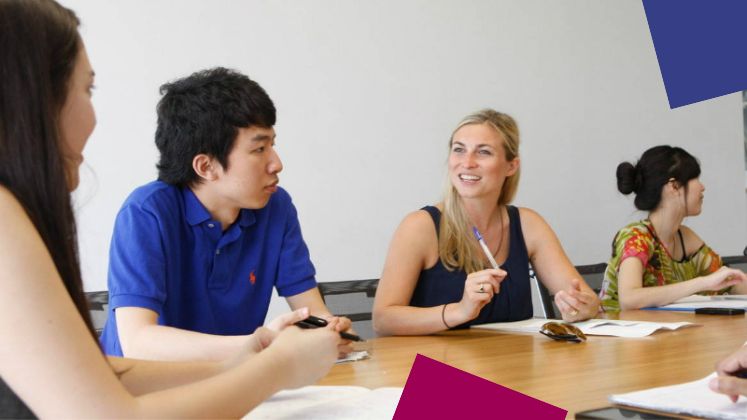
UCAS reference Your teacher's reference: what we're looking for
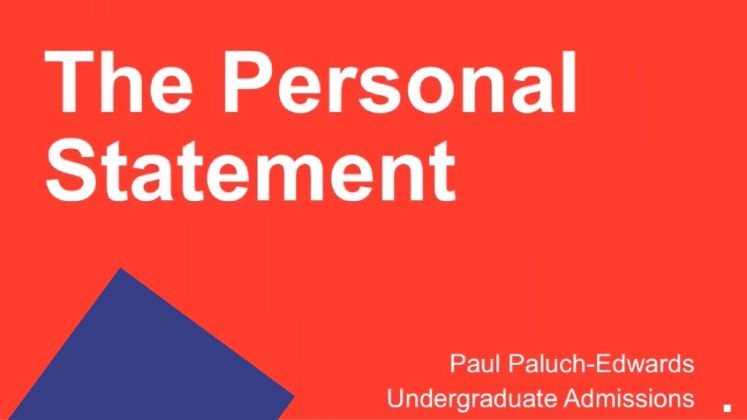
Watch this presentation LSE Admissions Specialist Paul talks about personal statements

Study at LSE webinars Watch our Personal Statement FAQs webinar

Explore our Virtual Undergraduate Open Day Resources, guidance and videos on applying to LSE and more

Use our programme finder Explore our undergraduate degrees
Live revision! Join us for our free exam revision livestreams Watch now →
Reference Library
Collections
- See what's new
- All Resources
- Student Resources
- Assessment Resources
- Teaching Resources
- CPD Courses
- Livestreams
Study notes, videos, interactive activities and more!
Economics news, insights and enrichment
Currated collections of free resources
Browse resources by topic
- All Economics Resources
Resource Selections
Currated lists of resources
Topic Videos
Writing a Great Economics Personal Statement
Last updated 21 Mar 2021
- Share on Facebook
- Share on Twitter
- Share by Email
In this special webinar, Geoff Riley offers a personal perspective on good practice in writing personal statements as part of applications for competitive economics degree courses.
You might also like
Competition policy case study - royal mail privatisation, what is globalisation, economic and social costs of high unemployment, development banks, price elasticity of demand and indirect taxes, oligopoly: evaluating costs and benefits of collusion, economics of global ageing (demography and development), micro and macro aspects of rising interest rates | synoptic paper 3, our subjects.
- › Criminology
- › Economics
- › Geography
- › Health & Social Care
- › Psychology
- › Sociology
- › Teaching & learning resources
- › Student revision workshops
- › Online student courses
- › CPD for teachers
- › Livestreams
- › Teaching jobs
Boston House, 214 High Street, Boston Spa, West Yorkshire, LS23 6AD Tel: 01937 848885
- › Contact us
- › Terms of use
- › Privacy & cookies
© 2002-2024 Tutor2u Limited. Company Reg no: 04489574. VAT reg no 816865400.
- Career Exploration
- Arts, Communications, & Media
- Education, Nonprofit, & Social Impact
- Business, Consulting, Finance, & Marketing
- Government, International Affairs, Law, & Public Policy
- Health Professions Advising
- Graduate School
- Signature Internships
- Grants Program
- Internship Credit
- Short Internship Projects (SHIPs)
- Fellowships for Undergraduates
- Fellowships for Graduates
- Class of 2025 Fellowship Planning
- Fellowships for International Students
- Civic Engagement
Writing a Personal Statement

Preparing to Write
Brainstorming, don't forget, sample prompts.
A personal statement is a narrative essay that connects your background, experiences, and goals to the mission, requirements, and desired outcomes of the specific opportunity you are seeking. It is a critical component in the selection process, whether the essay is for a competitive internship, a graduate fellowship, or admittance to a graduate school program. It gives the selection committee the best opportunity to get to know you, how you think and make decisions, ways in which past experiences have been significant or formative, and how you envision your future. Personal statements can be varied in form; some are given a specific prompt, while others are less structured. However, in general a personal statement should answer the following questions:
- Who are you?
- What are your goals?
- How does this specific program/opportunity help you achieve your goals?
- What is in the future?
A personal statement is not:
- A variation of your college admissions essay
- An academic/research paper
- A narrative version of your resume
- A creative writing piece (it can be creative, though)
- An essay about somebody else
Keep in mind that your statement is only a portion of the application and should be written with this in mind. Your entire application package will include some, possibly all, of the materials listed below. You will want to consider what these pieces of the application communicate about you. Your personal statement should aim to tie everything together and fill in or address any gaps. There will likely be some overlap but be sure not to be too repetitive.
- Personal Statement(s)
- Transcripts
- Letters of recommendations
- Sample of written work
- Research proposal
Preparing to Write A large portion of your work towards completing a personal statement begins well before your first draft or even an outline. It is incredibly important to be sure you understand all of the rules and regulations around the statement. Things to consider before you begin writing:
- How many prompts? And what are they? It is important to know the basics so you can get your ideas in order. Some programs will require a general statement of interest and a focused supplementary or secondary statement closely aligned with the institution's goals.
- Are there formatting guidelines? Single or double spaced, margins, fonts, text sizes, etc. Our general guideline is to keep it simple.
- How do I submit my statement(s)? If uploading a document we highly suggest using a PDF as it will minimize the chances of accidental changes to formatting. Some programs may event ask you to copy and paste into a text box.
- When do I have to submit my statement(s)? Most are due at the time of application but some programs, especially medical schools, will ask for secondary statements a few months after you apply. In these instances be sure to complete them within two weeks, any longer is an indication that you aren't that interested in the institution.
Before you start writing, take some time to reflect on your experiences and motivations as they relate to the programs to which you are applying. This will offer you a chance to organize your thoughts which will make the writing process much easier. Below are a list of questions to help you get started:
- What individuals, experiences or events have shaped your interest in this particular field?
- What has influenced your decision to apply to graduate school?
- How does this field align with your interests, strengths, and values?
- What distinguishes you from other applicants?
- What would you bring to this program/profession?
- What has prepared you for graduate study in this field? Consider your classes at Wellesley, research and work experience, including internships, summer jobs and volunteer work.
- Why are you interested in this particular institution or degree program?
- How is this program distinct from others?
- What do you hope to gain?
- What is motivating you to seek an advanced degree now?
- Where do you see yourself headed and how will this degree program help you get there?
For those applying to Medical School, if you need a committee letter for your application and are using the Medical Professions Advisory Committee you have already done a lot of heavy lifting through the 2017-2018 Applicant Information Form . Even if you aren't using MPAC the applicant information form is a great place to start.
Another great place to start is through talking out your ideas. You have a number of options both on and off campus, such as: Career Education advisors and mentors ( you can set up an appointment here ), major advisor, family, friends. If you are applying to a graduate program it is especially important to talk with a faculty member in the field. Remember to take good notes so you can refer to them later.
When you begin writing keep in mind that your essay is one of many in the application pool. This is not to say you should exaggerate your experiences to “stand out” but that you should focus on clear, concise writing. Also keep in mind that the readers are considering you not just as a potential student but a future colleague. Be sure to show them examples and experiences which demonstrate you are ready to begin their program.
It is important to remember that your personal statement will take time and energy to complete, so plan accordingly. Every application and statement should be seen as different from one another, even if they are all the same type of program. Each institution may teach you the same material but their delivery or focus will be slightly different.
In addition, remember:
- Be yourself: You aren’t good at being someone else
- Tragedy is not a requirement, reflection and depth are
- Research the institution or organization
- Proofread, proofread, proofread
- How to have your personal statement reviewed
The prompts below are from actual applications to a several types of programs. As you will notice many of them are VERY general in nature. This is why it is so important to do your research and reflect on your motivations. Although the prompts are similar in nature the resulting statements would be very different depending on the discipline and type of program, as well as your particular background and reasons for wanting to pursue this graduate degree.
- This statement should illustrate your academic background and experiences and explain why you would excel in the Department of Civil and Environmental Engineering (UMass Amherst - M.S. in Civil Engineering).
- Describe your academic and career objectives and how the Yale School of Forestry and Environmental Studies can help you achieve them. Include other considerations that explain why you seek admissions to the Yale School of Forestry and Environmental Studies and your interests in the environmental field (Yale - Master of Environmental Management).
- Please discuss your academic interests and goals. Include your current professional and research interests, as well as your long-range professional objectives. Please be as specific as possible about how your objectives can be met at Clark and do not exceed 800 words (Clark University - M.A. in International Development and Social Change).
- Write a 500- to 700-word statement that describes your work or research. Discuss how you came to focus on the medium, body of work, or academic area you wish to pursue at the graduate level. Also discuss future directions or goals for your work, and describe how the Master of Fine Arts in Studio (Printmedia) is particularly suited to your professional goals (School of the Art Institute of Chicago - MFA in Studio, Printmaking).
- Your statement should explain why you want to study economics at the graduate level. The statement is particularly important if there is something unusual about your background and preparation that you would like us to know about you (University of Texas at Austin - Ph.D in Economics).
- Your personal goal statement is an important part of the review process for our faculty members as they consider your application. They want to know about your background, work experience, plans for graduate study and professional career, qualifications that make you a strong candidate for the program, and any other relevant information (Indiana University Bloomington - M.S.Ed. in Secondary Education).
- Your autobiographical essay/personal statement is a narrative that outlines significant experiences in your life, including childhood experiences, study and work, your strengths and aspirations in the field of architecture, and why you want to come to the University of Oregon (University of Oregon - Master of Architecture).
- Personal history and diversity statement, in which you describe how your personal background informs your decision to pursue a graduate degree. You may refer to any educational, familial, cultural, economic or social experiences, challenges, community service, outreach activities, residency and citizenship, first-generation college status, or opportunities relevant to your academic journey; how your life experiences contribute to the social, intellectual or cultural diversity within a campus community and your chosen field; or how you might serve educationally underrepresented and underserved segments of society with your graduate education (U.C. Davis - M.A. in Linguistics).
- A Personal Statement specifying your past experiences, reasons for applying, and your areas of interest. It should explain your intellectual and personal goals, why you are interested in pursuing an interdisciplinary degree rather than a more traditional disciplinary one, and how this degree fits into your intellectual and personal future (Rutgers University - Ph.D in Women’s and Gender Studies).
- Your application requires a written statement to uploaded into your application and is a critical component of your application for admission. This is your opportunity to tell us what excites you about the field of library and information science, and what problems you want to help solve in this field. Please also tell us how your prior experiences have prepared you for this next step toward your career goals and how this program will help you achieve them (University of North Carolina Chapel Hill - Master of Science in Library Science).
- After watching the video, please describe what strengths and preferences as a learner you have that will facilitate your success in this innovative curriculum. What challenges in our curriculum do you anticipate and what strategies might you use to address these challenges? (MGH Institute of Health Professions PT - They recently redesigned their curriculum)
- Your personal goal statement should briefly describe how you view the future of the field, what your goals are to be part of that future, and what brought you to pursue an advanced education degree in your chosen field. You may include any other information that you feel might be useful. (Northeastern PT)
- Personal Statement: In 500 words or less, describe a meaningful educational experience that affected your professional goals and growth and explain how it impacted you. The educational experience does not need to be related to this degree. Focus on the educational experience and not why you think you would be a good professional in this field. (Simmons PT)
- Personal Statement (500 word minimum): State your reasons for seeking admission to this program at this institution. Include your professional goals, why you want to pursue a career in this field and how admission to this program will assist you in accomplishing those goals. (Regis College Nursing)
- “Use the space provided to explain why you want to go to this type of program.” (AMCAS)
- Address the following three questions(Though there is no set limit, most statements are 1–2 pages, single-spaced.): What are your reasons for pursuing this degree? Why do you wish to pursue your degree at this institution? How do you intend to leverage your degree in a career of this field? (Boston University MPH)
- Please submit a personal statement/statement of purpose of no more than 500 words for the department/degree of choice. Professional degree essays require a clear understanding of the _______ field and how you hope to work within the field. Be sure to proofread your personal statement carefully for spelling and grammar. In your statement, be sure to address the following: what interests you in the field of _____ what interests you in a specific degree program and department at this institution and what interests you in a particular certificate (if applicable). Please also describe how you hope to use your ________ training to help you achieve your career goals. (Columbia PhD in Public Health - Epidemiology)
- Because each Home Program requires significant original research activities in fulfillment of the requirements for the degree, we are interested in obtaining as much information as possible about your previous research experiences. Those who already have such experience are in a better position to know whether they are truly interested in performing ______ research as part of a graduate program. Please include specific information about your research experience in your Statement of Purpose. You may also use the Statement to amplify your comments about your choice of Home Program(s), and how your past experiences and current interests are related to your choice. Personal Statements should not exceed two pages in length (single spaced). Make sure to set your computer to Western European or other English-language setting. We cannot guarantee the ability to access your statement if it is submitted in other fonts. (Stanford Biosciences PhD)
- Your statement of purpose should describe succinctly your reasons for applying to the Department of ____ at ___ University. It would be helpful to include what you have done to prepare for this degree program. Please describe your research interests, past research experience, future career plans and other details of your background and interests that will allow us to evaluate your ability to thrive in our program. If you have interests that align with a specific faculty member, you may state this in your application. Your statement of purpose should not exceed two pages in length (single spaced). (Stanford Bioengineering PhD)
- Statement of purpose (Up to one page or 1,000 words): Rather than a research proposal, you should provide a statement of purpose. Your statement should be written in English and explain your motivation for applying for the course at this institution and your relevant experience and education. Please provide an indication of the area of your proposed research and supervisor(s) in your statement. This will be assessed for the coherence of the statement; evidence of motivation for and understanding of the proposed area of study; the ability to present a reasoned case in English; and commitment to the subject. (Oxford Inorganic Chemistry - DPhil)
Related resources

A 10-Step Guide to Writing an Outstanding Personal Statement
- Click to share on Facebook (Opens in new window)
- Click to share on Twitter (Opens in new window)
- Click to share on LinkedIn (Opens in new window)
Applying to college can be daunting, especially when it comes to writing a personal statement. This essay showcases not just your writing skills but also your unique personality, achievements, and aspirations. Understanding that while grades are crucial, a personal statement often becomes the differentiating factor in your application. To navigate this essential component, we’ve compiled a ten-step guide, replete with examples, to ensure your personal statement leaves a lasting impression on admissions officers.
Applying to college can be a daunting task, especially when it comes to writing a personal statement. This essay not only showcases your writing skills but also highlights your unique personality, achievements, and aspirations. While it may seem unnecessary, tedious, time-consuming, and just another tick-the-box, know that as each application is processed, grades are just one of the criteria of selection, more often than not a personal statement becomes the differentiating factor.

To help you navigate this crucial component of your application, we’ve compiled a ten-step guide, complete with inspiring examples to ensure your personal statement makes a lasting impression on admissions officers.
- Start Early and Brainstorm Begin the process early to give yourself plenty of time to brainstorm. Reflect on your experiences, achievements, and motivations. Think about what makes you unique, both in terms of personality and life experiences.
- Understand the Prompt Make sure you clearly understand what the college is asking for. Each institution may have different prompts or questions. Tailor your response specifically to each prompt, ensuring you answer it fully and directly. Be comprehensive and succinct in your answers, choosing words that convey your candidature the best.
- Create an Outline Draft an outline to organize your thoughts and ensure a coherent flow of ideas. This will help you structure your statement effectively, making sure every part contributes towards presenting a compelling narrative.
- Exhibit, Don’t Tell Use specific examples to demonstrate your qualities and achievements. Instead of stating that you’re a great leader, describe a situation where you demonstrated leadership. This method makes your statement more engaging and believable.
- Focus on Your Strengths While it might be tempting to cover a wide range of subjects, focusing on a few key strengths or experiences can have a stronger impact. Depth over breadth is crucial in personal statements.
- Be Authentic Admissions officers can tell when a statement is genuine. Write honestly about your experiences and passions and let your natural voice shine through. Authenticity is key to making a personal statement stand out.
- Get Feedback After drafting your statement, seek feedback from teachers, mentors, or friends. They can provide insights on clarity, grammar, and the overall impact of your essay. They all have a perspective of you from an external viewpoint, so do not skip this step.
- Revise and Edit Use the feedback to revise your statement. Look for areas where you can clarify your points, eliminate redundancy, and correct grammatical errors. This step is crucial for polishing your final submission.
- Keep It Concise Adhere to the word limit. Being able to express your thoughts concisely and effectively is a skill appreciated by admissions officers.
- Final Review Before submitting, do a final review. Read your statement out loud to catch any remaining errors or awkward phrasing. Make sure it sounds natural and is easy to read.
Examples of Exemplary Personal Statements:
Example 1: The Innovator Jane’s personal statement begins with a vivid description of her tinkering with a broken radio at age eight, which sparked her interest in technology. She intertwines her personal journey with her academic achievements, such as leading her school’s robotics team to a national competition. Jane uses specific examples, like designing a new robot navigation system, to demonstrate her passion and skill in engineering.
Example 2: The Community Leader John opens his statement with a powerful recount of organizing community relief efforts during a local flood. Highlighting his role in mobilizing volunteers and coordinating with local authorities, he demonstrates strong leadership and commitment to his community. His narrative includes feedback from the community and the personal growth he experienced, providing a well-rounded view of his character.
Example 3: The Attentive Listener Emma’s personal statement explores her profound appreciation for music and its role in shaping her interpersonal connections. She describes an afternoon spent sharing playlists with a group of international students, which turned into a deep discussion about cultural expressions through music. This experience not only highlights her listening skills but also illustrates her ability to forge meaningful relationships through shared interests.
Example 4: The Compassionate Leader David writes about his high emotional quotient and how it spurred him to lead a community initiative focused on animal welfare. His personal statement recounts organizing local workshops to educate people about animal kindness and launching a successful campaign for a local shelter. David’s story reflects his empathy and leadership in translating compassion into actionable community improvement.
Commentary: Every life is extraordinary; it’s how you narrate your story that captures the reader’s eye. Your personal statement should reflect your unique experiences and aspirations.
Conclusion:
In crafting your personal statement, remember, you don’t have to be extraordinary in the usual sense—honesty and transparency are key. Be a dreamer of the art of the possible; dream as big as you can and let those dreams articulate themselves in your words. This approach not only reveals your true self to admissions officers but also shows your potential to contribute meaningfully to their academic community. Start your adventure today! Use these steps as your guide to find the university that best fits your future goals. Dream big and achieve even bigger.
A 10-Step Guide to Picking the Right University
Do You Need Student Contents Insurance?
Study in uk – a guide for students from the uae and pakistan, navigating your graduate studies journey, ai-powered learning revolution: how tech supercharges your studies, exam success strategies: your ultimate guide for the academic final stretch.
Welcome to Resource Economics
In the Department of Resource Economics, we apply economics to tackle a wide range of questions including those related to the environment, health care, how industries are organized, and human behavior.

Announcements
In the news, upcoming events, spring 2024 seminars.
The department of Resource Economics is pleased to present the Spring 2024 seminar series. All seminars will be available in person in Stockbridge 303 unless stated otherwise.
Stockbridge Hall 80 Campus Center Way Amherst, MA 01003-9246
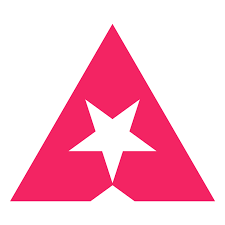
StarsInsider
From vision to reality: a guide to writing a personal mission statement
Posted: May 24, 2024 | Last updated: May 24, 2024

Today’s world is filled with so much noise and constant distraction. Through this chaos, though, it's important to find a clear sense of purpose and direction. A personal mission statement can be that answer. It acts as a guiding light or compass and helps point you along the way. Whether you’re currently navigating career choices, personal relationship struggles, or day-to-day priorities, a well-written mission statement will help you live more intentionally.
Curious as to how to create your own personal mission statement? Then click through the following slides.
You may also like:

Understanding personal mission statements
Follow us and access great exclusive content every day

Benefits of a personal mission statement

Components of a personal mission statement: Short- and long-term goals

The next step is to identify the core principles that drive your decisions and actions. For example, are you motivated by innovative change, autonomy, diversity, or something else entirely?
You may also like: Do you recognize these big TV stars from 10 years ago?

Highlight the areas you are passionate about. For example, if you are passionate about innovation and technology, you might choose to work in the technology sector.

You may also like: Eric Clapton: the life of a legendary musician

The difference you hope to make

How to write a personal mission statement: Identify your strengths
You may also like: The end of the world is near... (again)

Write about your values

Evaluate your skills
Assess your abilities and how they can help you achieve your objectives. Be sure to note soft skills and hard skills as well as skills you can improve upon to meet your career goals.
You may also like: The unsolved mysteries of the Bermuda Triangle

Select your desired position: Field

Select your desired position: Pick the role
You may also like: The most cringe-worthy celebrity wardrobe malfunctions

Select your desired position: Role-related specific goals
Set clear, actionable goals related to your chosen role. Breaking down your aspiration into SMART (Specific, Measurable, Attainable, Relevant, and Time-sensitive) goals will help guide you and keep you motivated.

Integrating your mission statement with your vision
You may also like: The most-asked "why" questions on Google

Formulating your vision
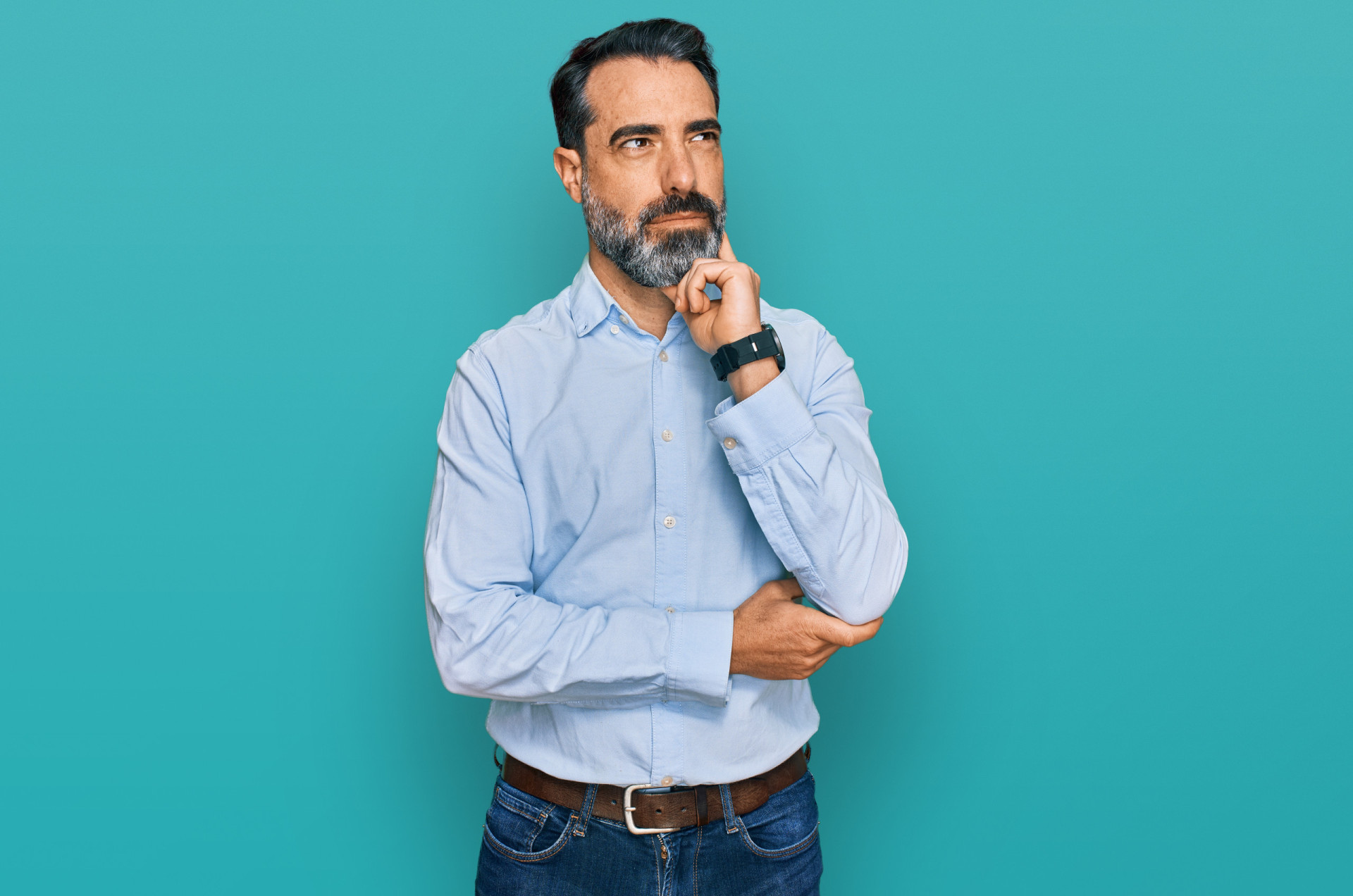
Highlight key attributes that guide your actions
You may also like: Europe's most picturesque small towns and villages

Using your personal mission statement: Review it every day
Keep it fresh in your mind to stay focused and motivated. Consider jotting it down on a sticky note that you then stick to a mirror and view daily.

Let it guide your job search
Use it to evaluate potential job opportunities and ensure they align with your mission.
You may also like: The most unusual places that people call home

Revising your statement: Decide why you need to change your statement
Reflect on significant changes in your career goals or values. Consider whether shifts in your life warrant a complete overhaul of your current statement, or just minor tweaks.

Reevaluate your new career goals
You may also like: The most amazing tunnels in the world

Seek feedback
Getting constructive feedback on your mission statement can provide new perspectives and enhance its clarity. Consider sharing it with mentors, colleagues, or career coaches.

Revising and refining your statement
You may also like: The deadliest surf spots on the planet

Sharing your mission statement

Common mistakes to avoid
You may also like: Celebrities who had their secrets spilled by employees

Balancing personal and professional goals
Integrating both personal aspirations and professional goals helps create a balanced and holistic mission statement.

Use your mission statement for motivation
You may also like: How Rihanna really spends her billions

Evaluating your progress
It’s important to regularly evaluate progress towards fulfilling your mission statement. This will help ensure you stay on track and make necessary adjustments.
Sources: (Indeed) (James Madison University) (FranklinCovey) (LiveCareer)
See also: How (and why) to create a personal development plan
More for You
How many points did Caitlin Clark score last night? Rookie held in check by Las Vegas Aces
5 people explain what it actually feels like to die
Trump pledges to commute sentence of Silk Road founder Ross Ulbricht if elected
"The First Time I Visited The US I Thought This Was A Restaurant Scam": Non-Americans Are Sharing The Things That Are Totally Common In The US But Bizarre In Other Countries
What would happen if everyone stopped eating meat tomorrow? - Carolyn Beans
Sleep experts say brushing your teeth right before bed is a common nighttime routine mistake — here's why
Me 262: Hitler's Secret Jet Fighter
10 Hidden Features on Cruise Ships You Had No Idea Existed
The Unexpected Sauce You Should Fry Eggs In For An Elevated Breakfast
Netflix's Most Ambitious Sci-Fi Show Won't Be Coming Back Anytime Soon
The World’s Strongest Acid Might be Gentle Enough to Eat
Rain threatens Kyle Larson’s pursuit of racing history
Want to live 20 years longer? Study finds 8 habits that can lengthen your life.
Avoid The Cell Phone Lot: The Airport Departures Pickup Hack
12 Underrated Canned Foods You Should Be Eating More Often
We may have found a new telltale sign of alien life
FIRST DRIVE: New 656bhp Aston Martin Vantage… Too Much Power?
Brian Cox on quantum computing and black hole physics
California Considers Charging Drivers by the Mile
Are Stocks Going to Plunge if Donald Trump Wins and Congress Is Split? Here's What History Says About Stock Market Returns in This Scenario.

California is about to tax guns more like alcohol and tobacco − and that could put a dent in gun violence
Professor of Economic Development & Peacebuilding, University of San Diego
Disclosure statement
Topher L. McDougal does not work for, consult, own shares in or receive funding from any company or organisation that would benefit from this article, and has disclosed no relevant affiliations beyond their academic appointment.
View all partners
Starting in July 2024, California will be the first state to charge an excise tax on guns and ammunition. The new tax – an 11% levy on each sale – will come on top of federal excise taxes of 10% or 11% for firearms and California’s 6% sales tax.
The National Rifle Association has characterized California’s Gun Violence Prevention and School Safety Act as an affront to the Constitution. But the reaction from the gun lobby and firearms manufactures may hint at something else: the impact that the measure, which is aimed at reducing gun violence, may have on sales.
As a professor who studies the economics of violence and illicit trades at the University of San Diego’s Kroc School of Peace Studies, I think this law could have important ramifications.
One way to think about it is to compare state tax policies on firearms with those on alcohol and tobacco products. It’s not for nothing that these all appear in the name of the Bureau of Alcohol, Tobacco, Firearms and Explosives, also known as ATF.
What alcohol, tobacco and firearms have in common
That agency, part of the Justice Department, is tasked with making American communities safer . The ATF focuses on those products because, while legal, they can cause significant harm to society – in the form of drunken driving, for example, or cancer-causing addictions. They also have a common history: All have been associated with criminal organizations seeking to profit from illicit markets.
Alcohol and tobacco products are thus usually subject to state excise taxes. This policy is known as a “ Pigouvian tax ,” named after 20th-century British economist Arthur Pigou. By making a given product more expensive, such a tax leads people to buy less of it, reducing the harm to society while generating tax revenue that the state can theoretically use to offset those harms that still accrue.
California, for instance, imposes a US$2.87 excise tax on each pack of cigarettes. That tax is higher than the national average but much lower than New York’s $5.35 levy . California also imposed a vaping excise tax of 12.5% in 2021.
Of the three ATF product families, firearms have enjoyed an exemption from California excise taxes. Until now.
The costs of gun violence
Anti-gun advocates have long called for the firearm industry to lose the special treatment it receives, given the harms that firearms cause. The national rate of gun homicides in 2021 was 4.5 per 100,000 people . This is eight times higher than Canada’s rate and 77 times that of Germany. It translates into 13,000 lives lost every year in the U.S.
Additionally, nearly 25,000 Americans die from firearms suicide each year. This implies a rate of 8.1 per 100,000 per year , exceeding Canada’s by more than four times. Moreover, more people suffer nonfatal firearm injuries than die by guns.
Gun deaths and injuries aren’t just tragic – they’re expensive, too . One economist estimated the benefit-cost ratio of the U.S. firearms industry at roughly 0.65 in 2009. That means for every 65 cents it generates for the economy, the industry produces $1 of costs.
And that back-of-the-envelope calculation may be an underestimate. It included the cost of fatal gun violence committed within the U.S. But the estimate didn’t include nonfatal injuries , or the cost of firearm harms occurring outside the U.S. with U.S.-sold weapons.
Mexico pays a steep price for US gun trade
America has been called the world’s gun store . No country knows this better than Mexico. The U.S. endured roughly 45,000 firearms deaths in 2019 , while the rest of the world combined saw 200,000. Mexico, which shares a long, permeable border with the U.S., contributed 34,000 to that grisly total.
Mexico’s government estimates that 70% to 90% of traceable guns used in crimes seized in the country come from the United States. Other examples abound. For instance, U.S.-sold guns fuel gang violence in a lawless Haiti.
No investor would back such an industry if they were forced to pay its full cost to society. Yet U.S. gun sales have grown fourfold over the past 20 years to about 20 million guns annually, even though they’re now deadlier and more expensive.
What alcohol, tobacco and firearms don’t have in common
Across the U.S., there’s not a single state where firearms are taxed as much as alcohol and tobacco. I think guns should probably be taxed at a higher level than both of them. That’s because unlike alcohol and tobacco – consumable products that disappear as soon as they’ve been used – firearms stick around. They accumulate and can continue to impose costs long after they’re first sold.
Starting in July, California will tax firearms at about the level of alcohol. But the state would have to apply an excise tax of an additional 26% to equal its effective tax on tobacco.
It’s unclear how the new tax will affect gun violence. In theory, the tax should be highly effective. In 2023, some colleagues and I modeled the U.S. market for firearms and determined that for every 1% increase in price, demand decreases by 2.6%. This means that the market should be very sensitive to tax increases.
Using these estimates, another colleague recently estimated that the California excise tax would reduce gun sales by 30% to 44%. If applied across the country, the tax could generate an additional $1.5 billion to $1.9 billion in government revenue.
One possible problem will come from surrounding states: It’s already easy to illegally transport guns bought in Nevada, where laws are more lax, to the Golden State.
But there’s some evidence that suggests California’s stringent policies won’t be neutralized by its neighbors.
When the federal assault weapons ban expired in 2004, making it much easier to buy AR- and AK-style rifles across much of the U.S., gun murders across the border in Mexico skyrocketed. Two studies show the exception was the Mexican state of Baja California, right across the border with California, which had kept its state-level assault weapons ban in place.
Gun seizures in Mexico show that all four U.S. states bordering Mexico rank in the top five state sources of U.S.-sold guns in Mexico. But California contributes 75% less than its population and proximity would suggest.
So, California laws seem to already be making a difference in reducing gun violence. I believe the excise tax could accomplish still more. Other states struggling against the rising tide of guns will be watching closely.
This article has been updated to correct the extent of U.S. gun sales growth over the past 20 years.
- Gun violence
- Murder rate
- US gun violence
- Externalities

Research Fellow

Senior Research Fellow - Women's Health Services

Lecturer / Senior Lecturer - Marketing

Assistant Editor - 1 year cadetship

Executive Dean, Faculty of Health
- Skip to main content
- Keyboard shortcuts for audio player
Benedictine College nuns denounce Harrison Butker's speech at their school
John Helton

Kansas City Chiefs kicker Harrison Butker speaks to the media during NFL football Super Bowl 58 opening night on Feb. 5, 2024, in Las Vegas. Butker railed against Pride month along with President Biden's leadership during the COVID-19 pandemic and his stance on abortion during a commencement address at Benedictine College last weekend. Charlie Riedel/AP hide caption
Kansas City Chiefs kicker Harrison Butker speaks to the media during NFL football Super Bowl 58 opening night on Feb. 5, 2024, in Las Vegas. Butker railed against Pride month along with President Biden's leadership during the COVID-19 pandemic and his stance on abortion during a commencement address at Benedictine College last weekend.
An order of nuns affiliated with Benedictine College rejected Kansas City Chiefs kicker Harrison's Butker's comments in a commencement speech there last weekend that stirred up a culture war skirmish.
"The sisters of Mount St. Scholastica do not believe that Harrison Butker's comments in his 2024 Benedictine College commencement address represent the Catholic, Benedictine, liberal arts college that our founders envisioned and in which we have been so invested," the nuns wrote in a statement posted on Facebook .
In his 20-minute address , Butker denounced abortion rights, Pride Month, COVID-19 lockdowns and "the tyranny of diversity, equity and inclusion" at the Catholic liberal arts college in Atchison, Kan.
He also told women in the audience to embrace the "vocation" of homemaker.
"I want to speak directly to you briefly because I think it is you, the women, who have had the most diabolical lies told to you. How many of you are sitting here now about to cross the stage, and are thinking about all the promotions and titles you're going to get in your career?" he asked. "Some of you may go on to lead successful careers in the world. But I would venture to guess that the majority of you are most excited about your marriage and the children you will bring into this world."

For many Missouri Catholics, abortion rights means choosing between faith, politics
That was one of the themes that the sisters of Mount St. Scholastica took issue with.
"Instead of promoting unity in our church, our nation, and the world, his comments seem to have fostered division," they wrote. "One of our concerns was the assertion that being a homemaker is the highest calling for a woman. We sisters have dedicated our lives to God and God's people, including the many women whom we have taught and influenced during the past 160 years. These women have made a tremendous difference in the world in their roles as wives and mothers and through their God-given gifts in leadership, scholarship, and their careers."
The Benedictine sisters of Mount St. Scholastica founded a school for girls in Atchinson in the 1860s. It merged with St. Benedict's College in 1971 to form Benedictine College.
Neither Butker nor the Chiefs have commented on the controversy. An online petition calling for the Chiefs to release the kicker had nearly 215,000 signatures as of Sunday morning.

6 in 10 U.S. Catholics are in favor of abortion rights, Pew Research report finds
The NFL, for its part, has distanced itself from Butker's remarks.
"Harrison Butker gave a speech in his personal capacity," Jonathan Beane, the NFL's senior VP and chief diversity and inclusion officer told NPR on Thursday. "His views are not those of the NFL as an organization."
Meanwhile, Butker's No. 7 jersey is one of the league's top-sellers , rivaling those of better-known teammates Patrick Mahomes and Travis Kelce.
Butker has been open about his faith. The 28-year-old father of two told the Eternal Word Television Network in 2019 that he grew up Catholic but practiced less in high school and college before rediscovering his belief later in life.
His comments have gotten some support from football fan social media accounts and Christian and conservative media personalities .
A video of his speech posted on Benedictine College's YouTube channel has 1.5 million views.
Rachel Treisman contributed to this story.
- Harrison Butker
- benedictine college

IMAGES
VIDEO
COMMENTS
Examples. Firstly, here is a list of ten economics personal statement examples available online. Also below, there is analysis of what makes a great economics personal statement. + Good evidence of independent study. + Great supercurricular activities discussed.
"A good personal statement will get across why the student is interested and motivated to study economics," says Edward Cartwright, professor of economics at De Montfort University. "Unfortunately, economics is often misunderstood and so it is encouraged to spend the time to learn what economics is really about before applying and writing the ...
Economics Personal Statement Example 5. Choosing an undergraduate degree in economics is a result of my deep seated curiosity to know why economies are they way they are; why oil prices in my country, Pakistan, rapidly fluctuate whereas economies like USA and China continue to strengthen despite recessions...
Economics degree personal statement example (1e) UCL offer. Submitted by: Anonymous. "Travelling around the world, and having visited places including America and Iran, has allowed me to personally witness..." Economics degree personal statement example (2d) with review. Submitted by: Anonymous.
The following personal statement is written by an applicant who got accepted to top graduate programs in economics. Variations of this personal statement got accepted at Oxford, Cambridge, and LSE. Read this essay to get inspiration and understand what a top economics school PS should look like. You might also be interested in reading this ...
Browse our range of Economics personal statement examples. Gain inspiration & make sure you're on the right track when writing your own personal statement. Order Prospectus
What to include in your economics personal statement. Your long-term goals: explain how your degree choice fits with your future ambitions and career aspirations. Wider reading: do pick out one or two specific issues that had an impact on you - just saying you subscribe to 'The Economist' or 'The FT' or that you've read ...
The bottom line is that showing an interest in Economics requires time and effort alongside your studies. Starting to implement extra reading alongside your studies should be done at an early stage. When you start university you are expected to do extra reading, so this is a good skill to start developing now! Step 6.
Economics Masters Personal Statement Sample. Written by Hannah Slack. This is an example personal statement for a Masters degree application in Economics. See our guide for advice on writing your own postgraduate personal statement. The notion of financial risk has always fascinated me.
This statement is thoughtful and interesting, and conveys clear motivations for studying Economics, as well as demonstrating a good level of preparation for university study. The student elaborates on their response to each preparatory activity they engaged in, rather than falling into the trap of simply listing books read and lectures attended.
After a first draft, it is important for you to get someone to review your Economics personal statement. This can help give you an objective perspective on what others think. Show it to your careers advisor at school, your Economics teacher, your Economics classmates, maybe even parents/siblings that have gone through a similar process.
Economics personal statements need to show a strong understanding of the mathematical and statistical side of the subject as well as an interest in global economic issues. Reading, watching documentaries, and listening to podcasts are fantastic ways to improve your Economics personal statement - and what's more, you can do them from the ...
Advice For People Writing Their Economics Personal StatementIntroductionSome of the advice here will be mirrored in the general PS writing guidance as well, particularly in the extra curricular section and the style advice.Start writing your personal statement early as many people go through a huge number of drafts before they are happy with their final PS.This is the general format for a PS ...
Enrolling on our Oxford Economics & Management comprehensive Programme will help you perfect your Personal Statement. Welcome to UniAdmissions, the world's first Oxbridge preparatory school with an Oxbridge success rate of 57% and with over 500+ UniAdmissions students placed at Oxford and Cambridge. Performing well in the TSA is crucial for ...
Economics Personal Statement. A personal statement is up to 4000 characters or 47 lines where you tell a University why you are a suitable candidate for the course. Unfortunately, there is no way of guaranteeing a place on your chosen course but a combination of a good personal statement and the right grades will certainly give you a good chance.
The personal statement should be clear and well-written. Be realistic about your career goals. While showing interest in research in economics is important, don't spend too much time describing your passion for economics. This will be unlikely to persuade admissions committees. Get to specifics as soon as possible.
Through my exciting internships and motivated self-study, I have been committed to engaging with Economics and Mathematics both in theory and in practice, to deepen my passion and skills for these subjects in preparation for my degree. This personal statement was written by zzXragXzz for application in 2013. zzXragXzz's university choices.
Top 5 Tips for your Cambridge Economics Personal Statement. 1. Demonstrate that you are well-read in economics. Cambridge does not presume prior knowledge of Economics (after all, you are going to Cambridge to study it!). However, being familiar with Economics terminology as well as its basic principles would give you an edge over other applicants.
Writing your personal statement. We expect that your submitted Personal Statement is structured and coherent and that you fully utilise the space available on your UCAS application form. We expect that you have checked spelling, punctuation, and grammar and that your Personal Statement flows in a logical order.
Earning a coveted spot at the London School of Economics and Political Science (LSE) is a dream for many aspiring social science scholars. This prestigious institution fosters critical thinkers and future leaders, demanding a personal statement for LSE that reflects not just academic prowess, but genuine intellectual curiosity and a drive to contribute to the ever-evolving social, political ...
Writing a Great Economics Personal Statement. Level: A-Level. Board: AQA, Edexcel, OCR, IB, Eduqas, WJEC. Last updated 21 Mar 2021. Share : In this special webinar, Geoff Riley offers a personal perspective on good practice in writing personal statements as part of applications for competitive economics degree courses.
Business and economics degree personal statement example (1a) This is a real personal statement written by a student for their university application. It might help you decide what to include in your own. There are lots more examples in our collection of sample personal statements. Economics was the first subject which caught my attention, and ...
A personal statement is a narrative essay that connects your background, experiences, and goals to the mission, requirements, and desired outcomes of the specific opportunity you are seeking. It is a critical component in the selection process, whether the essay is for a competitive internship, a graduate fellowship, or admittance to a graduate school program.
Read your statement out loud to catch any remaining errors or awkward phrasing. Make sure it sounds natural and is easy to read. Examples of Exemplary Personal Statements: Example 1: The Innovator Jane's personal statement begins with a vivid description of her tinkering with a broken radio at age eight, which sparked her interest in ...
Welcome to Resource Economics. In the Department of Resource Economics, we apply economics to tackle a wide range of questions including those related to the environment, health care, how industries are organized, and human behavior. About Resource Economics Learn more.
Using your personal mission statement: Review it every day. Keep it fresh in your mind to stay focused and motivated. Consider jotting it down on a sticky note that you then stick to a mirror and ...
Canada's ongoing economic malaise and decline in living standards are rooted in a ... Disclosure statement. ... Write an article and join a growing community of more than 184,100 academics and ...
Disclosure statement. ... As a professor who studies the economics of violence and illicit trades at the University of San ... Write an article and join a growing community of more than 184,200 ...
An order of nuns affiliated with Benedictine College rejected Kansas City Chiefs kicker Harrison's Butker's comments in a commencement speech there last weekend that stirred up a culture war ...